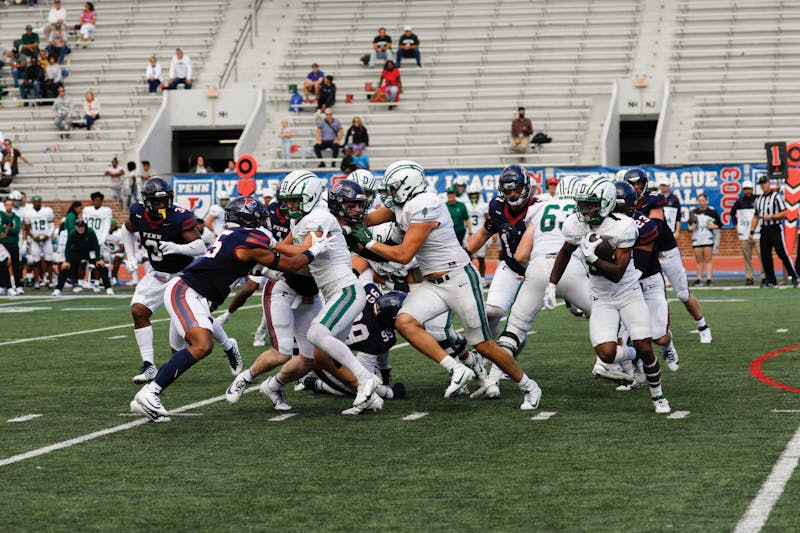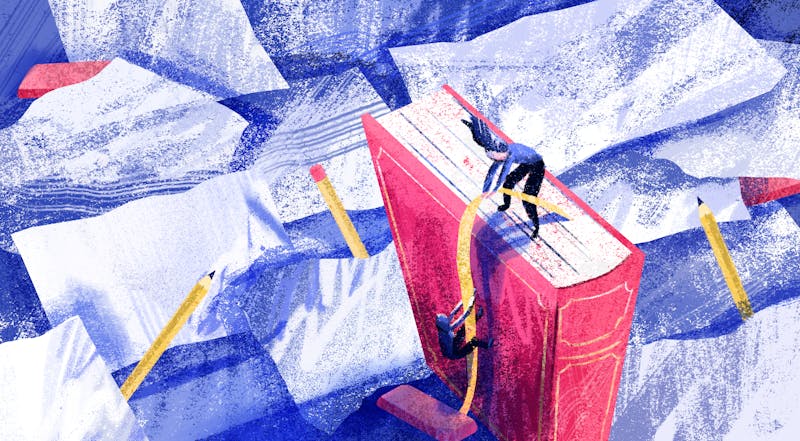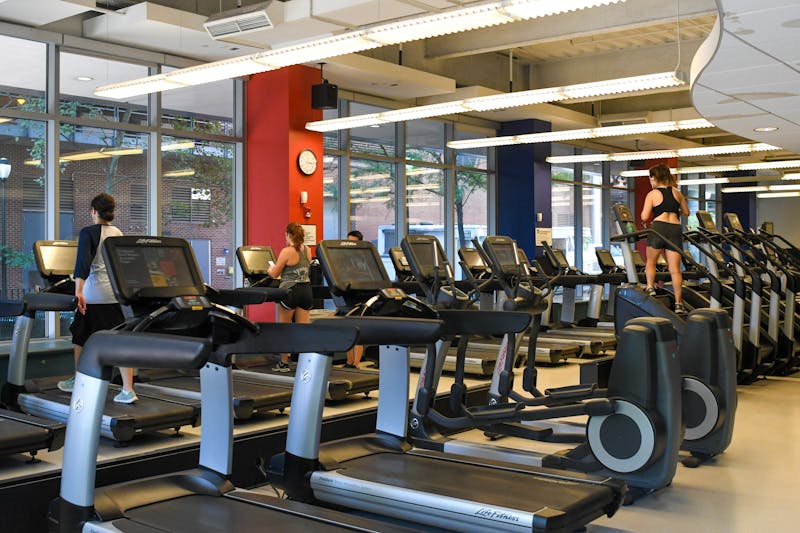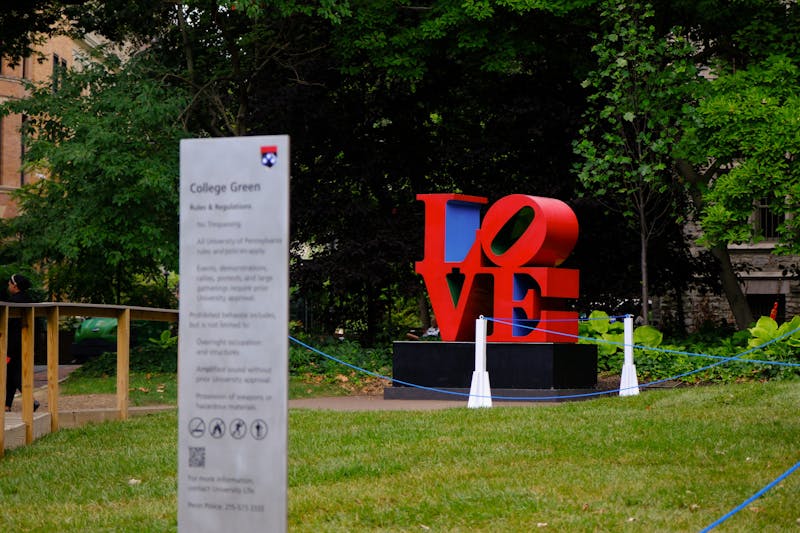
Penn men’s basketball formally announced its incoming freshman class on Tuesday.
Credit: Sukhmani KaurOn Tuesday, Penn volleyball traveled to Baltimore for a matchup against Coppin State, a game that saw the Quakers fall 3-2. But in addition to the defeat on the court, the team suffered another loss: a day’s worth of classes at the university they represent.
That is because Penn’s game took place at 11 a.m. on a weekday morning, a rare scheduling quirk that resulted in a day of excused academic absence for the team — a day of missed material, a day of quizzes that would need to be made up,, a day the rest of the student body got to keep. And while this occurrence was rare — and in many ways, nominal — it is indicative of a greater inconsistency with which how Penn supports the academic pursuits of its student-athletes.
One of the founding principles of the Ivy League — a name which has become synonymous with educational excellence but is, ironically, nothing more than an athletic conference — is a commitment to the classroom above all else. The conference proclaims itself as the “pinnacle of higher education and Division I athletics,” and defines its primary objective as the keeping of sports “in harmony with the essential educational purposes of the institution.”
In many ways, the conference upholds this standard. Few other leagues hold themselves to the same stringent admission standards as the Ancient Eight, and the conference does not engage in the same dubious tutoring practices as a number of other Division I programs. But within those lofty academic standards lies a difficult pitfall: the task of balancing a full load of coursework with an unrelenting athletic schedule.
This struggle is nothing new, and exists for many student-athletes outside the Ivy League. But instances like the Red and Blue’s Tuesday morning game illustrate the incongruence with which these institutions aid their double-sided superstars. Athletes at Penn are not given priority when it comes to selecting their courses, often creating impossible dilemmas when it comes to aligning them with their practice schedule. Many Division I schools have expansive athlete-only spaces, including study rooms, but Penn's Education Commons at Franklin Field is open to all students. While many of Penn's athletic facilities are located on campus, others, like the rowing boathouse, require a bus ride to reach, further increasing the time commitment posed by daily practice.
Penn men's tennis junior Matt Rutter says that Penn has made "significant strides" in improving student-athlete support in recent years, citing improved communication between the athletic department and professors, as well as systems that ensure a "more seamless learning process" for the University's athletes.
At the same time, Rutter posited that the structure could also be improved, primarily via preferred course selection for student-athletes.
"An aspect of support which we feel would have a tremendously positive impact on our academics and sports performance is priority registration for classes," Rutter wrote in a statement to the DP. "Being a student-athlete requires meticulous planning and disciplined time management, as we balance a full academic load with 20 hours of athletic commitment each week. Having more certainty regarding class schedules would enable us to optimize both our academic and athletic performance … [it] would similarly help us achieve the best possible outcomes both inside and outside the classroom."
The issues by Rutter and others are exacerbated by another founding Ancient Eight principle: the refusal to administer athletic scholarships. Juggling academics and athletics is a fact of life for players across the nation, but in most cases, they receive reduced tuition for their trouble. Not so at Penn, where the primary material benefit for donning the Red and Blue is the popular Penn Athletics parka — which student-athletes need to purchase themselves.
The Ancient Eight’s founding ideals also place limits on certain sports’ on-field potential — again, with inconsistent application. Ivy League football teams are prohibited from participating in the postseason, a ban which many link to the coinciding timing of the postseason with the schools’ fall final exam schedule. But other Penn programs are allowed to participate in their respective playoffs, including men’s and women’s lacrosse, which, last spring, played a combined six games in the Ivy League and NCAA tournaments during Penn’s final exam window.
In this way, the conference's academic and athletic demands mutually hinder one another. And while that is impossible to avoid, the league's schools can nonetheless take more action toward improving the support systems for the students who bear their logos. In order to be the true pinnacle of academics and sport, the Ancient Eight must be certain that every student has the tools they need to succeed in both avenues.
WALKER CARNATHAN is a junior and current DP sports editor studying English and Cinema and Media Studies from Harrisburg, Pa. All comments should be directed to dpsports@thedp.com.
The Daily Pennsylvanian is an independent, student-run newspaper. Please consider making a donation to support the coverage that shapes the University. Your generosity ensures a future of strong journalism at Penn.
Donate












